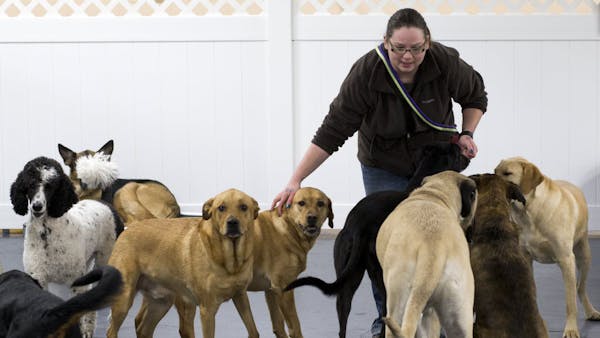A highly contagious strain of canine flu that has surfaced in several Midwestern states has been confirmed in Minnesota, officials said Wednesday.
Five dogs came down with the H3N2 strain at a training and rescue facility in Detroit Lakes and have since recovered, according to the state Board of Animal Health.
While the virus is considered quite contagious, it typically produces only moderate symptoms, and the board is not advising dog owners to do anything out of the ordinary in ensuring their animals' health.
"It's important that we do not scare people," said Dr. Paul Anderson, an official with the board. Anderson said pet owners could take their dog to a veterinarian if it exhibits respiratory symptoms but said that avoiding dog parks, as some pet lovers have suggested, is unnecessary.
"The fatalities are very low" for this strain, he said, "but it's one that makes a dog feel pretty crummy for a few days."
The virus can cause persistent cough, runny nose and fever. Experts say a small percentage of dogs will develop more severe symptoms, and some deaths have been reported. There is no vaccine for the H3N2 strain. Shots are available for a similar strain seen last year, and some veterinarians believe it could help ward off this strain.
Canine flu does not sicken people but is highly contagious to other dogs. The strain is not related to the avian flu that has struck Minnesota's poultry industry.
Anderson said he suspects the dog flu arrived in Minnesota when an infected puppy being rescued from Ohio and examined in suburban Chicago arrived at a dog boarding and training center in Detroit Lakes on March 30. The center was quickly closed when the puppy and the other dogs fell ill about a week later. The facility reopened three weeks after being cleared by local and state veterinarians.
Experts are blaming the epidemic on a strain that is commonly seen in Asia and lasts in dogs for about two weeks. The virus gets passed through the air when dogs sneeze or by people when germs jump on hands or clothing, where they can live for hours.
Paul Walsh • 612-673-4482
